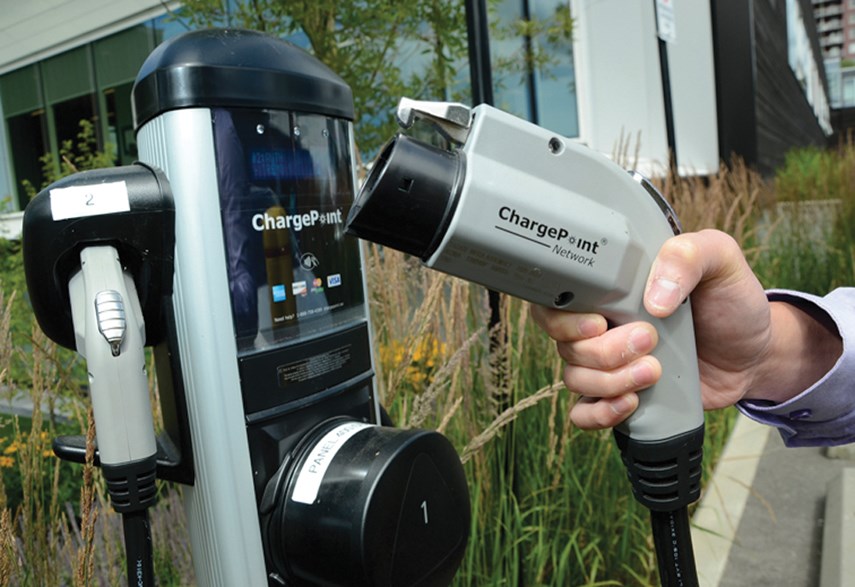The City of North Vancouver has an electrifying new strategy in the works.
As the city looks to meet its goal of reducing greenhouse gas emissions by 50 per cent by 2050, council directed staff during a recent meeting to look into how the city should approach future policy when it comes to electric vehicles and the infrastructure that supports it.
“I think staff are doing some good work on this,” noted Mayor Darrell Mussatto. “I do believe it’s time, though, that we get a little more aggressive with our policies in the sense of the way that we use the electric vehicle charging stations.”
A staff report states that the electric vehicle market has changed significantly over the past few years and the city’s public charging stations have become increasingly popular.
Data from the report notes that a charging station on East First Street issued a total of 2,073 kilowatt hours of energy in 2014. Last year, the same station issued a total of 58,548 kilowatt hours of energy.
“The city right now is paying for every time someone plugs into that and I know that Vancouver and Richmond and, I believe, Surrey have now started charging them. And I think that’s only fair to do cost recovery,” Mussatto said. “As much as I think electric vehicles are a way to move forward, I do believe that if someone plugs in they should pay for the charge for electricity that they’re using.”
Any revenues could be used to invest further in electric charging infrastructure for the city, the staff report notes, but “the city needs to determine whether additional investment in public charging infrastructure is required,” especially seeing as the majority of electric vehicle charging is still done at home.
Staff have secured $38,000 from BC Hydro for research and engagement associated with developing a more sustainable electric vehicle strategy for the city.
In 2016, the city updated its sustainable development guidelines with the expectation that all projects seeking rezoning had to provide 20 per cent of their residential parking spaces with access to electric vehicle charging.



